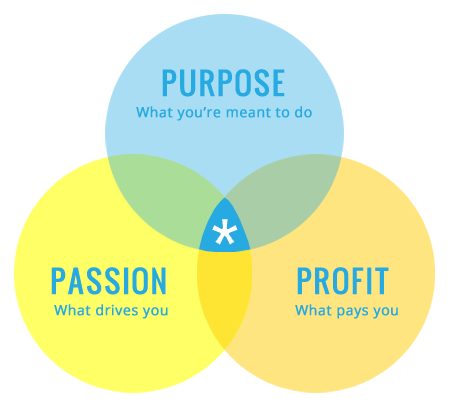Profit with purpose
Post on: 16 Март, 2015 No Comment

Published January 14, 2014
Bindle & Keep. a Brooklyn-based company that makes high-end, custom-made suits for men and women, hardly seems like a prime example of purpose with profit. And yet, through an unexpected turn of events, the company has found itself deeply invested in an extremely niche market: creating suits that are aesthetically male — not women’s suits — for transgender and female clients. This demographic now makes up one-quarter of Bindle & Keep’s customers, and the numbers are growing.
In November 2013, The New York Times featured a profile of the company and its unexpected consumer base, in which founder Daniel Friedman admitted, “I had no idea this market existed.” He further reveals that “when we started this business, it was for money… and now it’s not. It was the emotion, the excitement that people had, that became everything for the company.”
We caught up with Derrick Ableman, director of marketing at Bindle & Keep, to learn more about the company’s experience marketing to an under-represented demographic, and the benefits of truly profiting with purpose.
AG: As explained in the NYT article, focusing on the transgender and female communities has provided Bindle & Keep with an unexpected source of revenue. But has altering—pun intended—your target demographics affected your branding? How does all of this interact with the founding principles of being a bespoke menswear outlet?
DA: Bindle & Keep was founded on the core principles of collaboration and individuality. Everything about our business is personalized, one-to-one: We visit our clients in their homes, meet their families, and listen for what makes them feel their best. Our measurements and work have always resulted in something more than just suits; they’re portraits.
So our success with the LGBT community actually confirms and reinforces these same principles. Thankfully, it simply hasn’t been a conflict of interest at all for us to expand our marketing in this way. And, in fact, it’s been just incredible being able to provide a suit that does so much more than we ever imagined: It helps these women and transgendered individuals feel self-assured in a way that they haven’t necessarily before. It completes their sense of self. The emails we’ve gotten from clients have been amazing.
AG: Has this affected your business with other demographics? Have you had any negative reactions?
DA: Believe it or not, no! The reaction has been overwhelmingly positive. This hasn’t affected business with our typical male client. We’re a progressive company, and I think our male clients have always known that.
One thing I’d like to mention is timing, which has really helped us. Thanks to the defeat of DOMA, we find ourselves in a profoundly historical moment, not only for our culture at large, but for the hundreds of thousands of men and women who have finally had their civil right to marry recognized. We’re honored beyond words to help our clients look and feel their best as they embark on the next phase of their lives.
AG: What about your sales team? How has this affected operations internally?
DA: Well, we have transgendered individuals on our sales team, which is ultimately how this all came about—one of our salespeople, Rachel Tutera, brought this whole idea to us when she applied. But in general, across the board, morale in the company is through the roof. Helping people look and feel their personal best is, of course, satisfying. Doing the same for a demographic that’s been historically and culturally marginalized feels even better. Playing some small role in a series of defining moments for both our clients and the country at large is priceless.
AG: Do you have advice for other businesses looking to invest in marginalized demographics?
DA: Yes! First of all, do your research and learn as much as you can about the community’s needs and desires. We’re definitely still learning. For instance, there’s a huge difference between someone who identifies as transgender, and a woman who feels more comfortable wearing a man’s cut. Make sure that you have representatives from that same community that can help you learn and relate to your customers, as we’ve done with our sales team.
Second, keep in mind that this is a competitive business advantage that goes well beyond profits. As mentioned, the emails we’ve received have been incredible, and I just can’t describe the feeling of knowing that you’re supplying something that can change someone’s life so much, and for the better. It’s great for the customers and us. But focusing on not just underrepresented but overlooked populations actually makes you incredibly unique as a business. As we focus more on these communities, we’re also seeing a lot of promising new talent and relationships coming out of the woodwork. People are interested in working with us on a number of new and exciting levels, from product design and sales to potential brand partnerships.
Thanks to Derrick Ableman for speaking with us! To learn more about Bindle & Keep, we encourage you to visit the company’s website at bindleandkeep.com .
What are ways that your business cultivates relationships with marginalized communities? Do you have other examples of local companies profiting with purpose?














